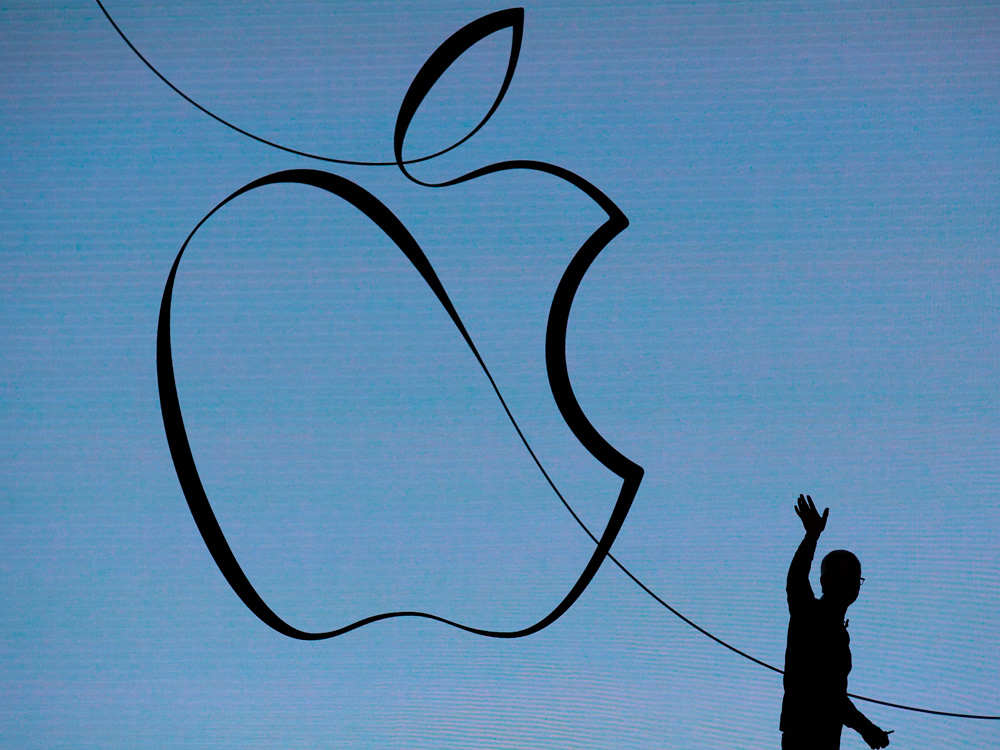[ad_1]
Traders braced for another dose of the turbulence that ruled equities all December after reduced guidance at Apple Inc. sent exchange-traded funds tracking major indexes falling.
News that the iPhone maker cut its first-quarter revenue forecast had something for everyone who has panicked over U.S. stocks in the past few months. Concern about the pace of growth in China, the impact of the U.S. tariff war and the general state of technology valuations all got an airing in the reaction to Apple’s warning.
“It’s going to bring home the point to most investors that this trade war is an issue, it’s out there, it’s getting worse and that you can’t just be hopeful that we’re going to have a resolution at the end of February,” said Michael O’Rourke, JonesTrading’s chief market strategist. “You have to be a little more cautious, and you have to be a little more defensive until we get further clarity and further visibility in the situation and it just seems like that’s not going to come anytime soon.”
The SPDR S&P 500 ETF, ticker SPY, fell 0.9 per cent in after-hours trading and the Invesco QQQ Trust, ticker QQQ, tracking the Nasdaq 100 Index lost about 1.8 per cent. In a press release published while trading in its shares was halted, Apple said it expects revenue of about US$84 billion in the quarter ended Dec. 29. Analysts had been forecasting US$91.3 billion, according to data compiled by Bloomberg.
U.S. equities just had their worst December since 1931 as concerns including the U.S.-China trade tensions drove the S&P 500 Index to the brink of a bear market. China PMI figures Tuesday night showed the Caixin index slipping below 50 for its lowest reading since May 2017 and new orders notching their weakest level since June 2016.
“This is just another little tea leaf as to the goings on behind the curtain in China and last night’s PMI coming out weaker than people thought,” said Kevin Caron, a senior portfolio manager at Washington Crossing Advisors. “To me, it’s more clues about what’s going on with the global economy. The more data points we get, the clearer we see the extent of the global slowdown.”
To be sure, Apple’s warning would’ve had a much larger impact if not for the drubbing equities have taken over the last three months. The price-earnings ratio of the Nasdaq 100 Index hit a four-year low below 20 last month, and Apple itself traded close to 12 times annual profit, more than three percentage points below the mean for the Dow Jones Industrial Average. More than US$4 trillion has been pruned from American equity values in the worst fourth-quarter rout since 2008.
The more data points we get, the clearer we see the extent of the global slowdown.
Kevin Caron, Washington Crossing Advisors
“The gut reaction here feels oversold,” said Mike Bailey, the director of research at FBB Capital Partners, which owns shares of Apple. “They’re definitely having difficulties in China but we’ve seen this movie before and they tend to have difficult quarters and recover and come back from that. If you have at least a year time horizon, Apple looks pretty attractive.”
For now, shares of Apple suppliers were taking the biggest hits. Skyworks Solutions Inc. fell as much as 6.6 per cent, while Broadcom Inc. slid 5 per cent and Qorvo Inc. dropped 5.2 per cent. Universal Display Corp. declined 3.5 per cent and Lumentum Holdings Inc. tumbled 8.7 per cent. Shares of U.S. retailers that sell Apple products were also weak on the news. Costco Wholesale Corp. retreated as much as 1.3 per cent in extended trading. Best Buy Co. fell 3.8 per cent while Target Corp. slid 1.2 per cent.
“The knee-jerk reaction is that it will influence trading,” said David Katz, chief investment officer at Matrix Asset Advisors. “Futures immediately sold off. Apple is a 4 per cent position in the market and considered a bellwether and comments were that the U.S. was fine, China was slower than expected. For the moment, the market won’t be able to differentiate between what’s China-specific and what’s Apple-related in China.”
[ad_2]
Source link Google News



